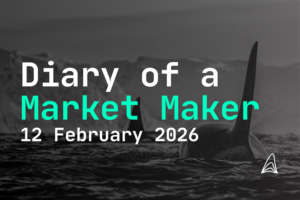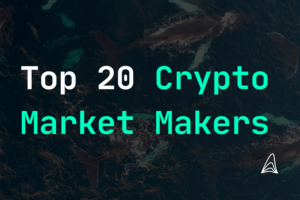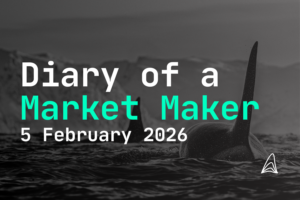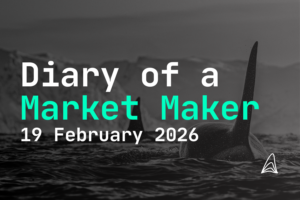
What Is a Decentralized Autonomous Organization (DAO)?
- Jakob Brezigar
- Last updated: 26.February 2024
- Reading time: 5 min
Imagine if your office coffee machine could order its own beans and even pay for them, all while plotting to take over the corporate world—one espresso shot at a time. Now, while we’re not exactly there yet, we are witnessing the rise of something similarly autonomous and innovative: the Decentralized Autonomous Organization (DAO). A DAO is essentially an organization run by code rather than humans, making decisions through member consensus on a blockchain platform, effectively turning traditional management on its head.

Table of Contents
What is a DAO?
A DAO (Decentralized Autonomous Organization) is an organization run by code on a blockchain, allowing for automated governance and decision-making through member consensus, eliminating centralized control.
How do DAOs benefit crypto market makers like Orcabay?
DAOs allow crypto market makers to utilize collective intelligence for decision-making, leading to optimized strategies and benefits such as reduced slippage in trades, enhancing market liquidity and stability.
What challenges do DAOs face?
DAOs encounter legal ambiguities and operational challenges due to their reliance on code and decentralized nature, which can impact scalability and governance efficiency.
A Decentralized Autonomous Organization (DAO) marks a paradigm shift in how we conceive organizational governance. Operating without a central leadership, DAOs leverage blockchain technology to facilitate a governance system that’s both transparent and resistant to censorship. This innovation not only challenges traditional management structures but also embodies the ethos of decentralized finance, promising a future where decision-making is distributed across its members.
The concept of DAOs has evolved significantly, reflecting a growing interest in fully decentralized platforms that operate autonomously, with smart contracts at their core ensuring operational integrity and enforcing the organization’s rules.
Key Takeaways
- Decentralized autonomous organization operates on blockchain technology, automating governance through smart contracts, eliminating the need for centralized control.
- They democratize decision-making, granting voting power and influence to token holders based on their stake.
- DAOs face legal and operational challenges due to their decentralized nature and reliance on code.
- Revenue generation in DAOs varies, including transaction fees and investments, supporting their sustainability and growth.
- The rise of DAOs signals a shift towards more transparent, efficient, and participatory models of governance across various sectors.
Why and How Are DAOs Important for Crypto Market Makers Like Orcabay
At Orcabay, our foray into Decentralized Autonomous Organizations (DAOs) has revolutionized how we interact with the crypto market. By participating in DAOs, we’re able to leverage collective intelligence for decision-making, optimizing our strategies in real-time with unparalleled precision. This collaborative approach not only aligns with our ethos of decentralization but also enhances our ability to respond to market dynamics efficiently.
A tangible benefit we’ve observed is the significant reduction in slippage for our trades, thanks to more informed and democratic decision processes within these DAOs. For crypto market makers like Orcabay, DAOs are not just important; they’re transformative, offering a platform for innovation, risk management, and community-driven growth, ultimately leading to improved market liquidity and stability.
What is Web 3.0 (Web3)? Definition, guide, and history
Web 3.0 represents an internet era where decentralized protocols are paramount, enabling a more democratic web where users control their own data. This era is characterized by the seamless integration of blockchain technology, which serves as the foundation for innovations like DAOs. The transition towards Web3 has been marked by significant milestones in the history of blockchain technology, each contributing to the decentralization of the web and paving the way for the emergence of decentralized autonomous organizations as key players in this new digital landscape.
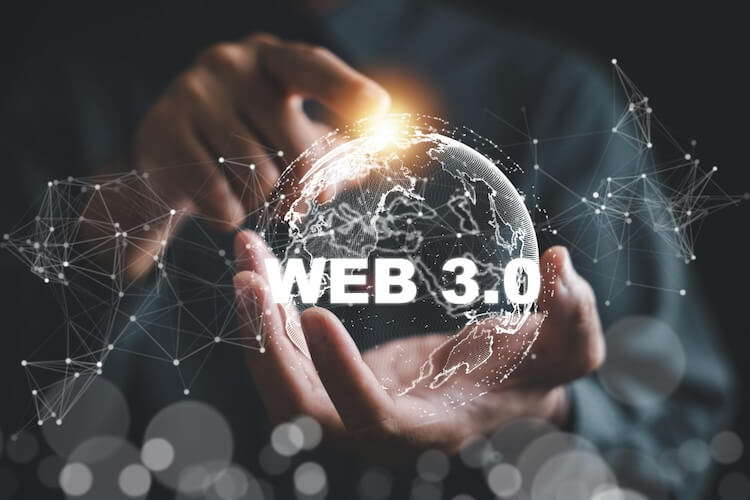
A Timeline and History of Blockchain Technology
Blockchain technology, while synonymous with cryptocurrencies, extends its utility far beyond, underpinning the operational framework of DAOs. Its history, beginning with the conceptualization of a cryptographically secured chain of blocks in the early 2000s to the launch of Bitcoin in 2009, and subsequent introduction of Ethereum, illustrates a trajectory towards creating a more secure, transparent, and equitable digital ecosystem. This timeline reflects the growing sophistication of Distributed Ledger Technology (DLT), which has become critical in the development of decentralized governance models.
Distributed Ledger Technology (DLT)
DLT encompasses a range of technologies that enable the secure functioning of decentralized networks like those used by DAOs. Beyond ensuring transaction integrity, DLT facilitates a decentralized governance mechanism, allowing DAOs to operate without central authority. This technological framework supports the creation, execution, and management of smart contracts, which are essential for automating organizational processes and ensuring that the decentralized autonomous organization’s rules are adhered to without bias.
How Does a DAO Work?
The first step in creating a smart contract is to identify the parties involved and establish the terms of the agreement. This involves defining the obligations, benefits, and penalties in clear terms. Just like in traditional contracts, all parties must agree on the terms before the contract can proceed to the next step.
Smart Contracts
Smart contracts are fundamental to the DAO model, enabling the automatic execution of agreements based on predefined conditions. These digital contracts facilitate a wide range of functions, from governance decisions to the management of DAO tokens, playing a critical role in the decentralized finance ecosystem. By automating these processes, smart contracts minimize the need for intermediaries, thereby reducing potential points of failure and enhancing the organization’s efficiency.
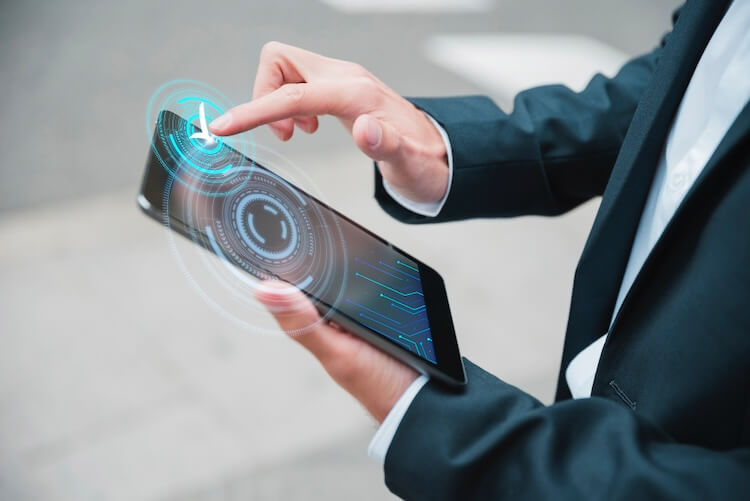
Does Smart Contract Play a Role with DAO Tokens?
Smart contracts are integral to the functioning of DAO tokens, which embody the voting power and stake of members within the organization. These tokens are crucial for participating in the governance system, allowing token holders to vote on proposals and influence the DAO’s direction. The smart contract executes these voting processes, ensuring transparency and fairness in decision-making, thereby reinforcing the principles of decentralized governance.
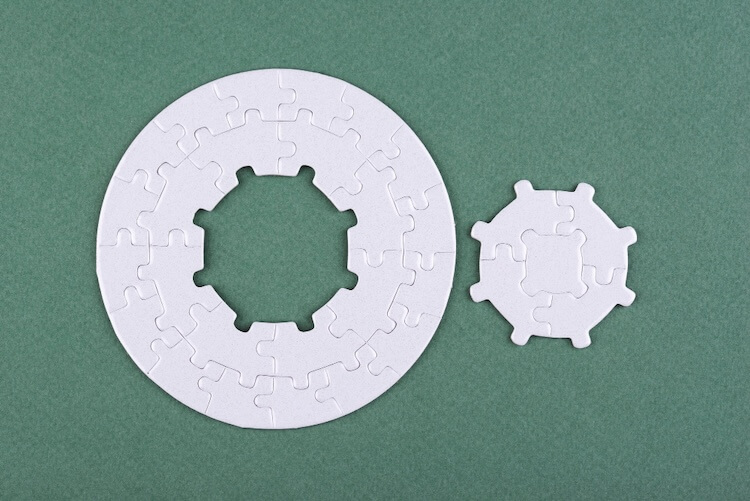
What Is the Purpose of Decentralized Autonomous Organizations (DAOs)?
The overarching purpose of DAOs is to establish a governance system that is not only transparent and efficient but also inclusive and democratic. By leveraging decentralized finance principles and blockchain technology, DAOs aim to disrupt traditional governance models, offering a platform where every member participates in decision-making. This model fosters a sense of community and collective ownership, with the organization’s success directly tied to the engagement and contributions of its members.
Benefits of DAOs
DAOs offer several advantages over traditional organizations, including enhanced transparency, security, and efficiency. The decentralized nature of DAOs significantly reduces the potential for fraud and corruption, as all transactions and decisions are recorded on the blockchain. Additionally, the automation of processes through smart contracts reduces operational costs and eliminates bureaucratic delays. These benefits are particularly appealing in the context of decentralized finance, where trust and efficiency are paramount.

Limitations of DAOs
Despite their potential, DAOs face significant challenges, including legal ambiguity and the risk of code vulnerabilities. The decentralized governance mechanism, while innovative, can also lead to issues with scalability and decision-making efficiency. These limitations underscore the importance of continuous technological advancement and the need for a supportive legal framework that recognizes and accommodates the unique structure of DAOs.
No Centralized Legal Entity (Decentralization)
The absence of a centralized legal entity is a defining characteristic of DAOs, challenging traditional legal and organizational frameworks. This decentralization raises questions about legal status and accountability, as DAOs operate in a regulatory gray area. However, it also offers unprecedented opportunities for creating a more equitable and democratic governance system, free from the limitations and inefficiencies of centralized control.
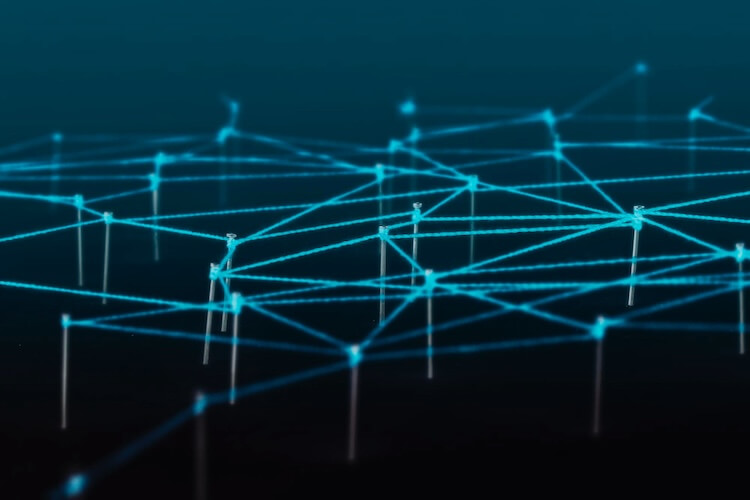
How Is a DAO Launched?
Launching a DAO involves a complex process of smart contract creation, token distribution, and the establishment of a governance framework. This process requires a thorough understanding of blockchain technology, legal implications, and the principles of decentralized governance. The successful launch of a DAO is a testament to the power of collective effort and the potential of decentralized networks to foster innovation and community-driven development.
How Does a DAO Make Money?
DAOs can generate revenue through various means, including transaction fees, investment returns, and the provision of decentralized services. The specific revenue model depends on the DAO’s objectives and governance structure, reflecting the flexibility and adaptability of the DAO model to different economic activities. This revenue supports the DAO’s operations and funds initiatives approved by its members, furthering the organization’s goals and contributing to its sustainability.

DAOs' Effects on Organizations
The emergence of DAOs represents a significant shift in organizational dynamics, offering a more transparent, efficient, and democratic alternative to traditional management structures. Their impact extends across various sectors, challenging established norms and encouraging a reevaluation of governance, ownership, and decision-making processes. As DAOs continue to evolve, they hold the potential to fundamentally change how organizations operate, promoting a more inclusive and participatory approach to governance.
Examples of DAOs
Notable examples of DAOs, such as MakerDAO and the Ethereum Name Service, illustrate the diverse applications and potential of this organizational model. These examples highlight the adaptability of DAOs to different domains, from decentralized finance to digital identity, showcasing the broad impact of blockchain technology and decentralized governance on various aspects of the digital economy.
Summary
This article delves into the transformative world of Decentralized Autonomous Organizations (DAOs), exploring their foundation on blockchain technology and smart contracts. It highlights how DAOs democratize governance, allowing token holders to influence decisions. Despite facing legal and operational challenges, DAOs are pivotal in promoting transparent, efficient governance models. By participating in DAOs, entities like Orcabay leverage collective intelligence for optimized crypto market strategies, experiencing benefits such as reduced trade slippage. The rise of DAOs signifies a shift towards more participatory and transparent governance in various sectors, particularly in the crypto market.
Disclaimer: The information provided in this article is for informational purposes only and does not constitute financial, investment, or other professional advice. All opinions expressed herein are solely those of the author and do not represent the views or opinions of any entity with which the author may be associated. Investing in financial markets involves risk, including the potential loss of principal. Readers should perform their own research and consult with a licensed financial advisor before making any investment decisions. Past performance is not indicative of future results.

Jakob Brezigar
Jakob, an experienced specialist in the field of cryptocurrency market making, boasts an extensive international presence. With Orcabay, he has skillfully managed major operations and deals for a wide array of global stakeholders.

